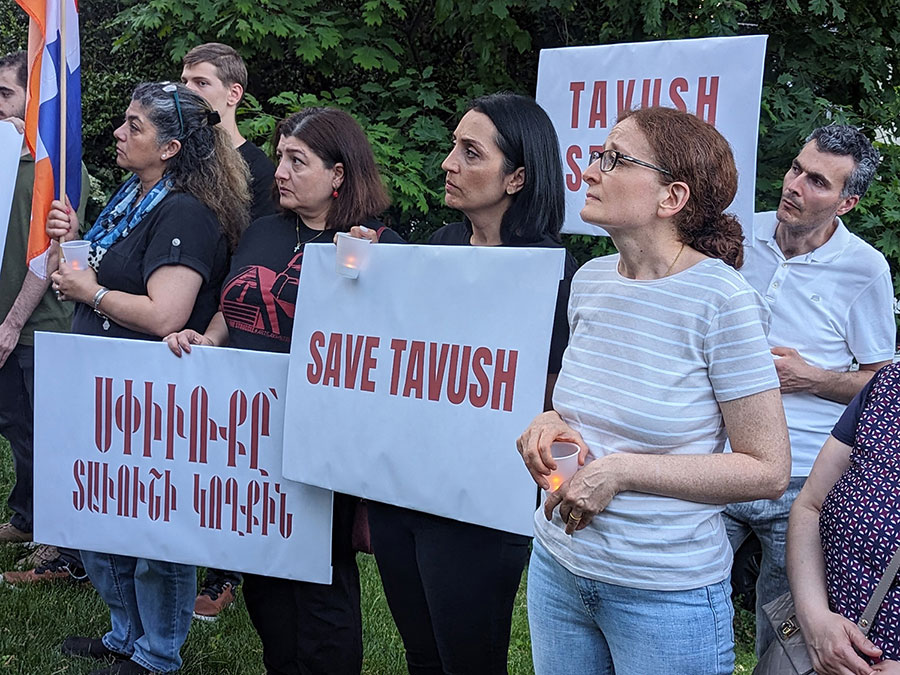by George Aghjayan
I wish to thank my friend Stepan Piligian for his June 5, 2024 column, “What is the end point? A call for pragmatism…” By writing such a column, he has afforded me the opportunity to address a number of misconceptions prevalent in Armenian political discourse. These misconceptions sound reasonable superficially, which is why they are used by those supporting the current regime, led by PM Nikol Pashinyan, in attempts to blunt criticisms of his policies. But when one delves deeper, the problematic nature of these positions becomes evident.
To begin, there is the claim that the Diaspora (if we can even use such a term, implying homogeneity), is “duplicitous” in advocating for Armenia and at the same time being critical of the policies of its government. Is this behavior so extraordinary? In a democracy, everyone has the right to be critical; that criticism does not relinquish the right to advocate for the country. More to the point, those criticisms are part of advocating for what is thought to be in the best interests of the country. Claiming that this behavior is deceitful harkens back to the days of “America, love it or leave it.”
Read also
We are United States citizens of Armenian descent. We advocate for policies that are in the best interests of the United States and Armenia. We do not require anyone to “respect us.” Again, we are fulfilling a fundamental role in a democracy. The United States has blundered in its South Caucasus policy. While this blunder is a minor blemish for the U.S., tragically, it has led to Armenia being placed on life-support.
While we each individually and organizationally have the ability to formulate the policies we believe to be most beneficial to both the U.S. and Armenia, critics also have the right to challenge those positions. However, it is unacceptable to dismiss criticisms of the policies of the government of Armenia simply based on where we live or the country of our citizenship. Attacking critics of the Pashinyan regime, not based on the merits or failings of their criticisms but rather the right of those people to criticize, is extremely problematic.
First, it generally indicates to me that criticisms of Pashinyan’s policies must have merit, if the only argument against them is to claim that critics don’t have a right to evaluate his policies. Second, we regularly criticize the policies of many countries where we do not live or have citizenship (Russia, Turkey, Azerbaijan, etc.).
So, then, why must we remain muted toward Armenia? Lastly, such argumentation implies that Diasporan Armenians are not impacted by the policies of Armenia. That may be the case with some policies, but when the policies of the Armenian government involve the Genocide with implications for descendants of that heinous crime, then those policies do impact us all, and we have a right to not only disagree but to actively implement policies in our interests, even if they counter the government’s.
In addition, an independent Armenia does have a direct impact on each of us, even in the Diaspora. Neither Armenia nor the Diaspora can survive without the other. But even if that were not the case, and somehow we were not impacted, that would neither inhibit our ability to openly evaluate the policies of the Armenian government nor diminish our criticisms.
This line of argumentation is extrapolated further to say, if you do not have children of military age in Armenia, then you cannot criticize. It continues until the only one “allowed” to have a position on the policies of Armenia is Pashinyan himself. It is odd to me, though the tactic is not surprising, as in the U.S. we do not relinquish our right to comment on the policies set by the president after an election just because they receive the majority of votes.
Another tactic deployed to disqualify critics is to claim that they are backed by some outside power. Those espousing such views never asked where Pashinyan’s funding came from in 2018 and the years prior to his rise to power. Neither do these supporters comment on Pashinyan’s protests against the elected government at that time. At least the former elected government had the honor to resign instead of responding with force as Pashinyan has done today.
But that really doesn’t matter, as we can never know people’s motivations. All we can do is evaluate their positions based on merit. The question today is whether Pashinyan’s current policies in regards to Azerbaijan, Turkey, Russia, the U.S., Iran, etc. are to the benefit of Armenia or not. There is a long discussion to be had on this topic, but it is clear from Pashinyan’s policies that it does indeed “take more than protests to govern,” if only his supporters would acknowledge that fact.




















































